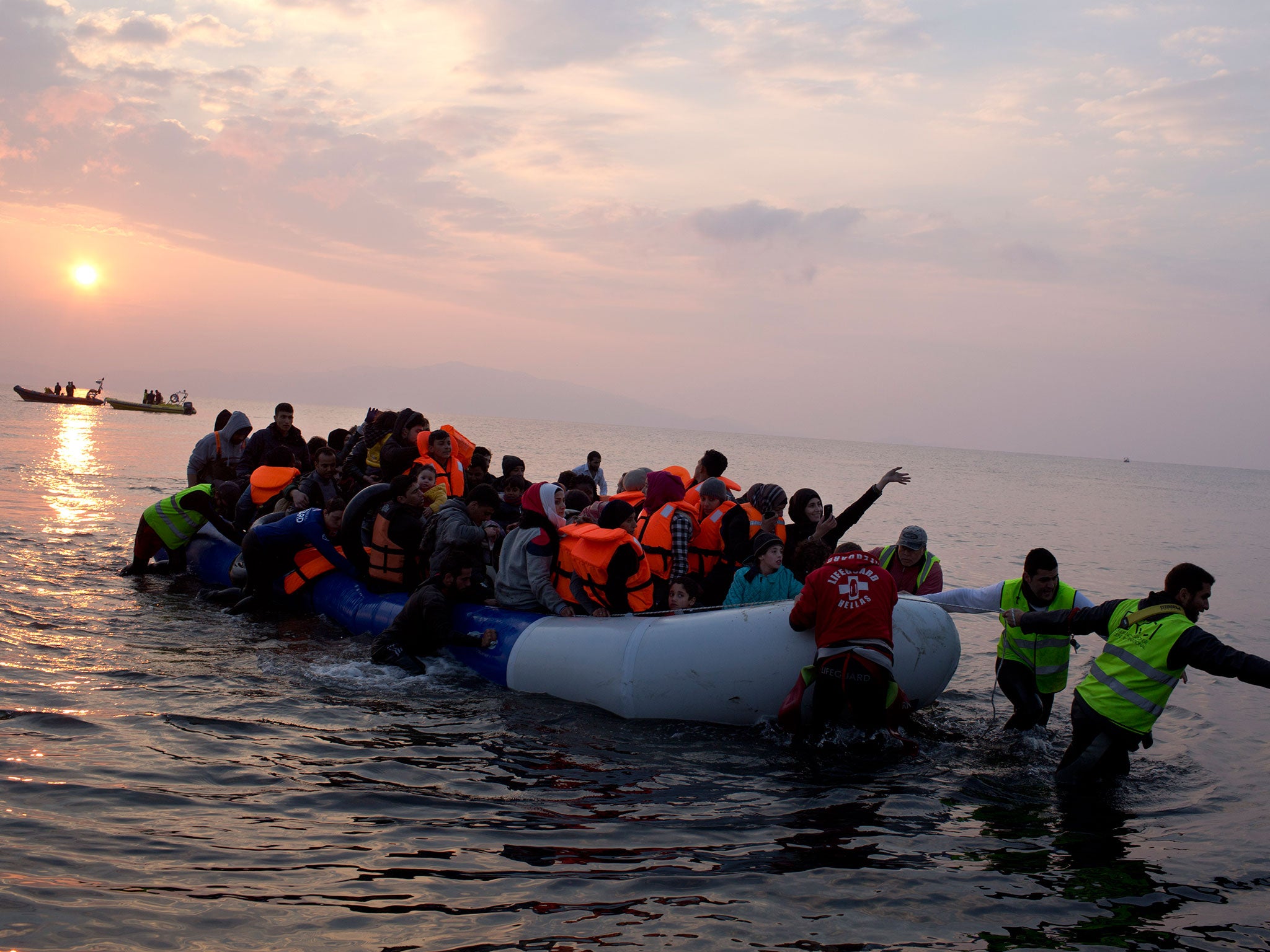Refugee deal between Turkey and EU sparks chaos on Greek islands
'We are quite frankly alarmed at the speed at which this deal has been put into effect'

Your support helps us to tell the story
From reproductive rights to climate change to Big Tech, The Independent is on the ground when the story is developing. Whether it's investigating the financials of Elon Musk's pro-Trump PAC or producing our latest documentary, 'The A Word', which shines a light on the American women fighting for reproductive rights, we know how important it is to parse out the facts from the messaging.
At such a critical moment in US history, we need reporters on the ground. Your donation allows us to keep sending journalists to speak to both sides of the story.
The Independent is trusted by Americans across the entire political spectrum. And unlike many other quality news outlets, we choose not to lock Americans out of our reporting and analysis with paywalls. We believe quality journalism should be available to everyone, paid for by those who can afford it.
Your support makes all the difference.Confusion reigned on the Greek islands on 20 March as a controversial deal between the European Union and Turkey to deport refugees came into effect.
Aid organisations and volunteers on the islands on the frontline of the crisis said that there was no sign of the hundreds of extra police, migration officers and translators needed to enforce the arrangement.
They warned that they had received no information from the Greek authorities and remained deeply concerned about the protections that would be granted under the new arrangement to those fleeing persecution and war.
Desperate to reduce the numbers of people using smugglers, EU leaders cemented a deal with Ankara last week to send all those who arrive from Turkey back the way they came. In exchange, Brussels agreed to give Turkey billions of pounds in funding to support refugees as well plans for visa-free travel to the Schengen area for Turkish citizens.
Greek officials have admitted that they don’t expect the returns policy to come into force until 4 April, by which time Greece must have set up a fast-track process for assessing asylum claims.
Aid organisations on the islands of Lesbos and Chios told The Independent that there had been a “scramble” by the authorities to move the thousands of people who arrived before the cut-off point. Late on 20 March, the majority of them had been sent to the Greek mainland. Two people were found dead on a boat early on 20 March, as hundreds more arrived from Turkey in the early hours, apparently undeterred by the change in the rules.
Dan Tyler, protection and advocacy adviser for the Norwegian Refugee Council on Chios, said it remained unclear what would happen to the 650 new arrivals on the island since the deal came into force. “It’s very chaotic – nobody knows what is happening… We are quite frankly alarmed at the speed at which this deal has been put into effect.”
His concerns were echoed by Michele Telaro, the field co-ordinator for Médicines Sans Frontières on the island of Lesbos, who said that about 300 people arrived there on 20 March. “We still have no information about what is going to happen.”
He said that he was concerned that the EU and the Greek authorities would want to process people’s asylum claims as quickly as possible but warned: “They have to fully respect international law.”
There are fears that shutting down the smuggling route across the Aegean Sea will simply encourage those desperate to reach Europe to take more dangerous routes.
It also remains unclear what will happen to the tens of thousands of migrants and refugees already in Greece after the closure of the main route through the Balkans.
Join our commenting forum
Join thought-provoking conversations, follow other Independent readers and see their replies
Comments